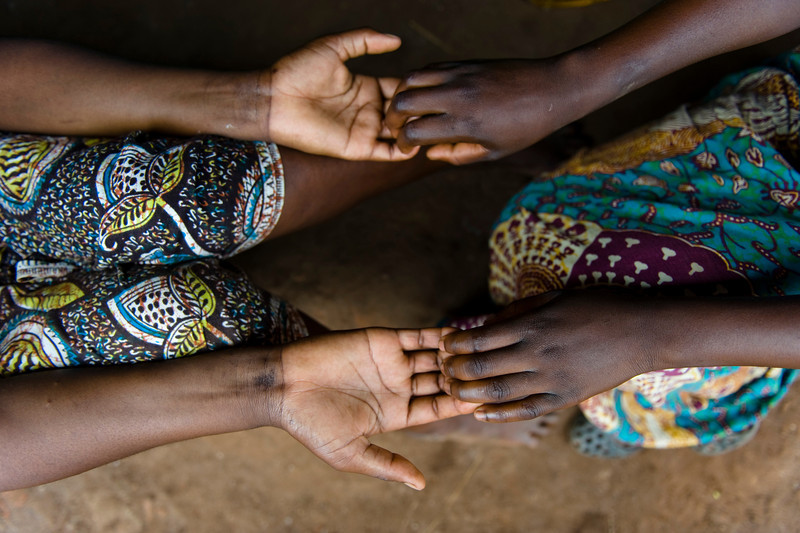This is a guest post by Ashley Simms, the third in a series of seven blog posts from my International Development Communications students at Georgetown University’s Public Relations and Corporate Communications Masters Program.
I have been evaluating candidates for open positions at my firm for the past few months and I’ve noticed a pattern. With careers postponed and four-year degrees extended, the Millennials in the U.S. have found a way to differentiate themselves in a sea of qualified candidates competing in a saturated job market.
Voluntourism, the edition that shows you seek to save the world and are inclined to think globally.
In fact, many candidates tout their envious excursions to countries across the globe as a core reason for deserving a position. What is the specific narrative they are trying to create?
Because I’ve traveled to Botswana and Honduras, I am fully capable of saving the world.
Gold star please
It’s this proclamation of self-importance and egotism that are most troubling to me as I wade through resumes and cover letters. I want to hear about the effect this person’s trip may have had on the local communities that were visited, or even the passion and motivation behind making the trip.

Unfortunately, what I read are cries for validation. The candidates want badges of honor they can wear proudly to coincide with their precisely-crafted resumes of accomplishments.
One notable candidate in particular stood out from the rest. He had traveled to several countries in his young academic career and boasted his credibility based on his global reach. He even created a scholarship to send other young college students to other countries to follow his same path.
His reasoning for fundraising to send other students on voluntourism excursions was that he thought it was extremely unfortunate that he was not able to travel to a distant country until he was in college – a priority far removed from the plights of the people living in the countries he visited. The tens of thousands of dollars he raised for trips could have been invested in sustainable programs, but this was not part of his equation. As he described his experience in the interview, he focused on how his life was changed and fully expected future employers to be impressed.
Even though there are numerous individuals like the young man I interviewed who are framing voluntourism as an asset to future employers, the phenomenon as a whole is under a merited attack and has been for some time, especially in poorer countries. While it’s unlikely that young professionals across the country are answering the call to serve only to improve resumes and make cover letters more robust, an upcoming generation of well-traveled leaders who only appear to be socially conscious will only further perpetuate the misconceptions of work done in the international development community.
So what should employers do when they come across voluntourism experience?
Firstly, employers should not automatically equate short voluntourism programs with lives changed in the community or village where the applicant went. Were local leaders and their efforts strengthened through the interaction? Did the projects or activities in which the applicant was engaged continue? Were relationships paternalistic and potentially disrespectful or based on the community’s goals and mutual accountability?
Second, employers should ask questions like those above to determine if the voluntourism trip was meaningful or whether it was merely a way to seek a new adventure.
Thirdly, make the conversations about voluntourism experiences an assessment of the candidate’s reasoning and critical thinking skills. If applicants demonstrate themselves as more thoughtful about their experience and the effects it had on the community, this – not the trip itself – is what can signal skills critical for success in the professional world.
***
 Ashley Simms currently works for FleishmanHillard delivering social marketing consultation to large public sector clients, including media relations, event management for brand and campaign activations, and new business development. Previously, Ashley worked at Susan Davis International where she was also engaged in creative services for a large government agency.
Ashley Simms currently works for FleishmanHillard delivering social marketing consultation to large public sector clients, including media relations, event management for brand and campaign activations, and new business development. Previously, Ashley worked at Susan Davis International where she was also engaged in creative services for a large government agency.
With a passion for advocacy, Ashley earned her bachelor’s degree in journalism and public relations from Michigan State University. She will graduate this fall from Georgetown University with a master’s degree in Public Relations & Corporate Communications.
***
Related Posts
Interview questions you should be asking of aid organizations
Community Resilience: An Untapped Resource for Sustainable Development?

I completely agree that voluntourism trips (and the phenomenon in general) need to be looked at critically. However, as someone who wants to work in the international development field, I was told that I need as much international experience, preferably before graduate school, as possible. I took jobs, not volunteer position, as an English teacher and assistant for two different organizations after I left college, one in Easter Europe, one in the Caribbean. To me, these were jobs. They had paychecks (I couldn’t have afforded to go if they didn’t). I was qualified. I worked hard. I left when I felt like I wasn’t contributing. But these same positions that I took as a job I saw advertised in other places as “volunteer with a stipend”. Expectations on the job were also different some times, as I came for a job, and was expected to go above and beyond as a bleeding-heart volunteer “giving their all”. How in the world am I supposed to reconcile all that to employers? I got the international work experience I was told I needed, but then it’s either getting written off as “voluntourism” or I was being judged as not “volunteer-y” enough. We have to have international experience, but as young people we often can’t get jobs that AREN’T more than glorified volunteer positions, but if we don’t take those positions, we’ll never get the “real” jobs. It’s all a terrible Catch-22.
Pingback: Volunteering: The paradox at the beginning of an aid career | Development Intern
Yes! Volunteering can be an important learning experience, but only if the volunteer thinks critically about it. Hiring managers should focus on what applicants actually learned from their experience, rather than just seeing it on their resume and checking the “experience abroad” box.
Mellen – I’ve been thinking about the same thing, and I actually just wrote a blog post on this exact topic – http://developmentintern.com/2014/06/10/volunteering-the-paradox-at-the-beginning-of-an-aid-career/. I would love to hear what you think!